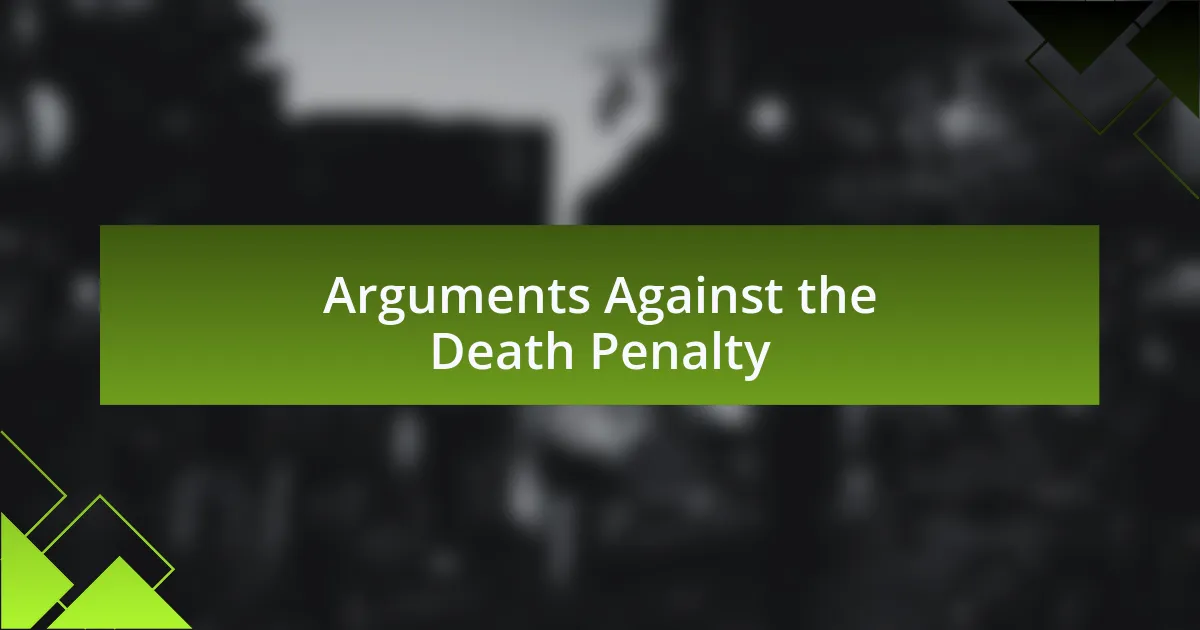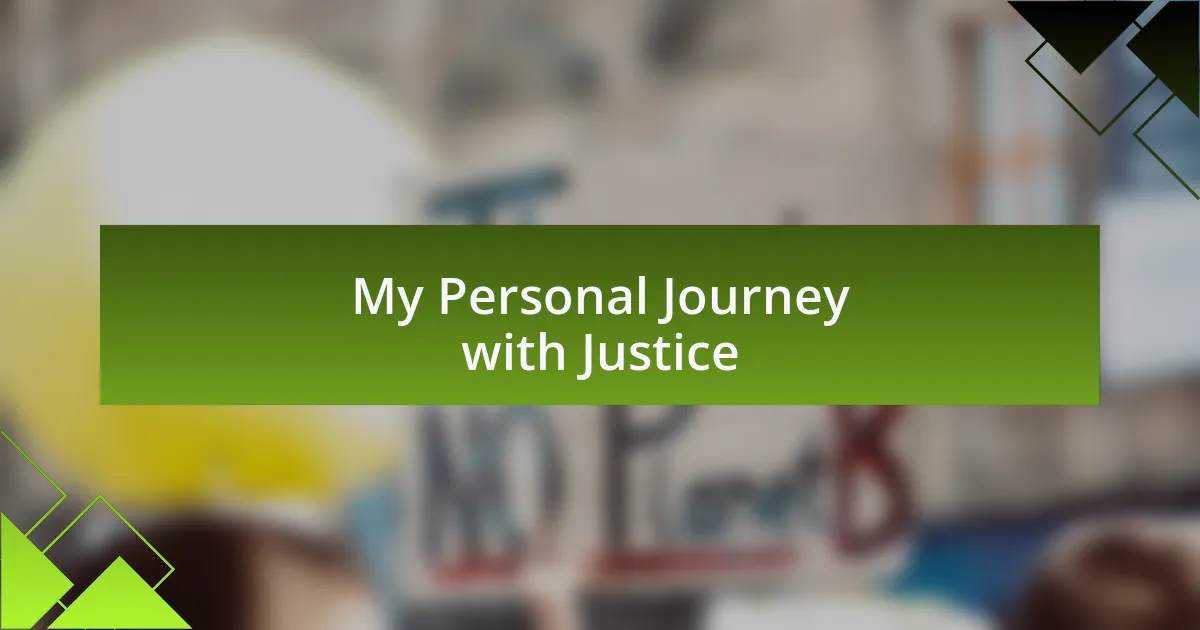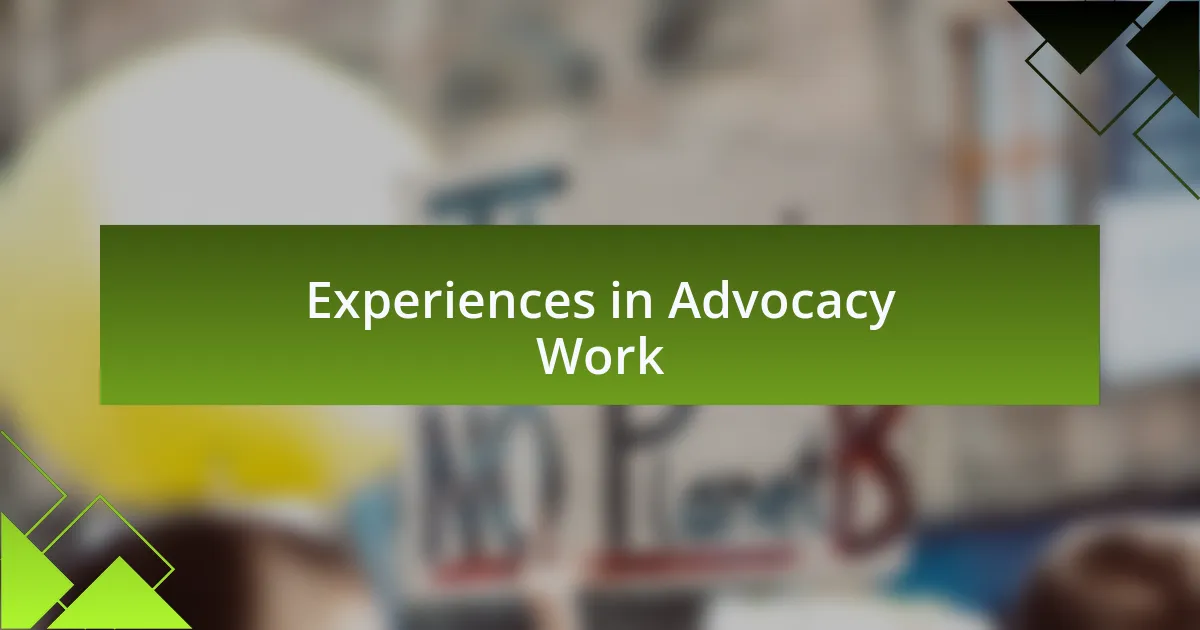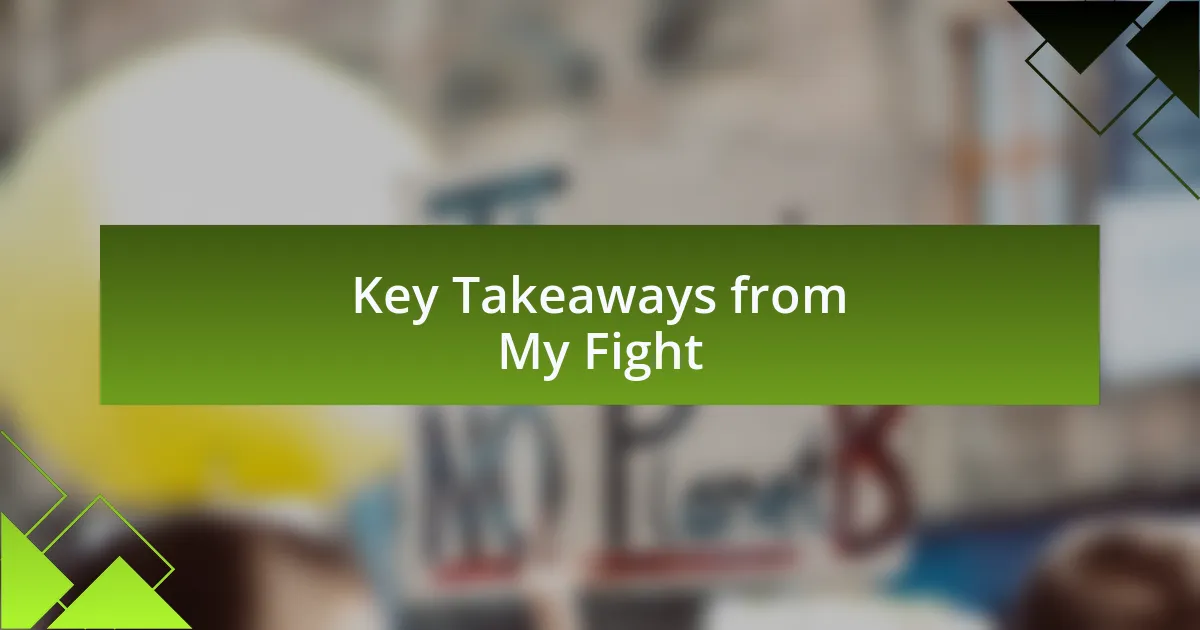Key takeaways:
- The death penalty raises profound moral questions about justice and the impact on families, both of victims and those on death row.
- The irreversible nature of executions and the influence of racial and economic bias highlight significant flaws in the judicial system.
- Advocacy work reveals the importance of storytelling and collaboration among groups to amplify voices and drive change.
- Resilience in the face of challenges is vital, as advocacy efforts are often fueled by the hope and experiences of affected families.

Understanding the Death Penalty
The death penalty, also known as capital punishment, is a legal process that involves executing an individual as a punishment for a crime, most often murder. I still remember the first time I encountered this reality in a documentary; the stark images and stories of families torn apart really struck me. How can society justify taking a life to punish another?
Beyond the statistics and laws, there lies a profound moral question: Is it truly justice to end a life in response to a crime? This question looms large in my mind whenever I hear about a new case being contested in court. I have personally felt the weight of this debate, grappling with the lives impacted—not just those on death row, but their families and the victims as well.
Moreover, I believe it’s crucial to examine the disparities in how the death penalty is applied. For example, socioeconomic status and race often influence who faces execution and who doesn’t. Reflecting on the stories of individuals who narrowly escaped death—due to legal loopholes or last-minute appeals—makes me wonder: are we really safeguarding justice, or are we perpetuating a flawed system?

Arguments Against the Death Penalty
One of the most compelling arguments against the death penalty is the irreversibility of an execution. Imagine the horror of realizing that an innocent person has been sentenced to death—this reality haunts me. I recall a story about a man who spent years on death row, only to be exonerated by new evidence. Such cases make me reflect on how many others might not be so fortunate.
Additionally, there’s the concern of racial and economic bias in capital punishment. I often think about how different the outcomes would be if wealth and race didn’t play such significant roles in the judicial system. It pains me to consider countless lives that have been impacted by this disparity, creating a cycle of injustice that is difficult to break.
Finally, the death penalty does not deter crime. I find it perplexing that, despite numerous studies showing this lack of effect, advocates still argue in its favor. It’s like shouting into a void while ignoring the facts. For me, this raises an important question: if the goal is to ensure safety and promote justice, shouldn’t we seek more humane and effective solutions?

My Personal Journey with Justice
My journey with justice began when I first volunteered at a legal clinic. I vividly remember sitting across from a young man who had lost everything due to a wrongful conviction. Hearing his story made me question the very fabric of our justice system. How could it fail someone so deeply? That experience ignited a fire in me, driving my desire to fight for change.
As I continued my advocacy work, I encountered survivors and families affected by the death penalty. One mother shared her heartbreak over losing her son to a flawed legal process. It struck me how deeply personal justice can be; each statistic is a life, each story a reminder of the human cost of inaction. It made me wonder—how many more families are waiting for their voices to be heard?
I often reflect on the pivotal moments that shaped my understanding of justice. Listening to survivors and witnessing their resilience taught me that the pursuit of justice isn’t just about legislation—it’s about human dignity. This realization pushes me to advocate fiercely against the death penalty, as I believe true justice must encompass empathy and understanding.

Experiences in Advocacy Work
In my advocacy work, I often found myself in the presence of immense sorrow and courage. One day, I attended a rally where the families of death row inmates gathered, each holding a sign bearing their loved one’s name. The atmosphere was thick with emotion, and I couldn’t help but wonder—how much pain can a family endure while fighting for justice? Their unwavering determination inspired me to push harder for transparency and reform.
Participating in community workshops further deepened my understanding of the barriers people face. I remember one workshop where we facilitated discussions about wrongful convictions. As people shared their experiences, the room was filled with palpable frustration and hope. It struck me how essential it is to create spaces for these discussions—what if we could prevent someone else from enduring the same fate? These interactions reinforced my belief that advocacy is not just about speaking out; it’s about amplifying voices that often go unheard.
One of the most enlightening experiences was collaborating with local activists to develop educational programs. We aimed to inform young people about the flaws in the death penalty system. I still recall their faces during a presentation when I shared a story of a man who was exonerated after spending years on death row. Their shocked expressions made me contemplate—if even one person can be saved from this fate, isn’t it worth every effort? These connections and shared moments have fueled my commitment to fight for justice every single day.

Key Takeaways from My Fight
One key takeaway from my fight for justice is the power of stories in advocacy. During one of my visits to a correctional facility, I met a man who had been wrongfully convicted. Listening to him recount the details of his case, I realized that each narrative carries immense weight—their stories can open hearts and minds. I often found myself asking, how can we ignore the lived experiences of those directly affected by the death penalty? It became clear to me that authenticity is an essential tool in rallying support.
Another insight is the importance of collaboration among various advocacy groups. At a recent conference, I saw diverse organizations come together for one common cause. I discovered that combining resources and expertise can amplify our impact. It made me reflect—what if we remained siloed, each fighting alone? The energy in that room was electrifying, proving that strength lies in unity and shared purpose.
Lastly, I learned that resilience is crucial in this fight. There have been moments of despair, especially after setbacks in legislation. Yet, each time I felt like giving up, I reminded myself of the families I met who still held onto hope. It begs the question—how can we not keep pushing forward when lives are at stake? These experiences taught me that perseverance, even in the face of adversity, is perhaps the most potent weapon we have against injustice.